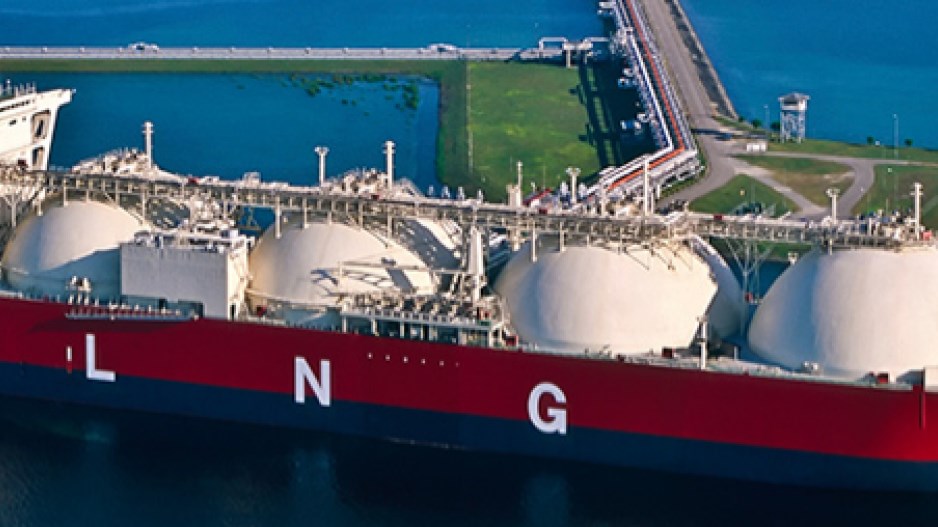The B.C. government must tread carefully on its “tax talk” as it attempts to develop an LNG industry in the province, according to an industry observer.
Earlier this year, B.C. outlined preliminary details for a “two-tier” LNG income tax structure, and intends to have legislation ready to be introduced by the fall.
But the government must be careful on such issues, Ziff Energy — division of HSB Solomon Associates LLC — gas services director Cameron Gingrich said on June 25. He was referencing an earlier speech by B.C. Natural Gas Minister Rich Coleman to the 2014 Canadian Energy Summit.
“In terms of Mr. Coleman’s speech, I heard a lot of talk [about] taxes where he’s talking about royalties, he’s talking about carbon [tax],” said Gingrich, who was a panelist at a later session. “It sounds like a lot of taxes there, so I caution [them].
“I saw that same sort of talk in Alaska eight to 10 years ago when they were trying to build out their natural gas industry. Now fast forward to today in Alaska, they’re not talking about taxes anymore, they’re talking about investing in a pipeline, investing in LNG.
“I’m looking at the B.C. government, I’ve got to caution them in terms of this tax talk.”
During his speech, Coleman stressed the province’s fiscal regime is competitive.
“We’re taking all the pieces that would affect an LNG operation — pipeline and the whole package — we’re putting it into a master development agreement.
“We will have the offsets nailed down, we will have what the emissions are nailed down, we will have the taxation nailed down. And we already know, by the way, the tax is competitive because we sat down with companies and told them what it is.
“We know we’re competitive, we’ve been told we’re competitive and now we’re going to give them certainty with master development agreements that will give them that certainty. Then we’ll go into our legislative assembly in the fall and we’ll pass legislation to lock it down.”
During a panel session, Mary Hemmingsen, global LNG lead with KPMG, noted that while B.C. has an advantage in terms of its shorter shipping distance to Asia vis-à-vis the U.S. Gulf Coast, she said a challenge is that the developments in the province are greenfield.
“We’re looking at a whole build-out of infrastructure and the U.S. is competing for the same Asian buyers,” she said, noting Gulf Coast exports would have to travel through the Panama Canal (which is being expanded to accommodate larger ships, but the route holds its own challenges for shipping LNG to Asia. For example, what fee will be charged to pass through it?). “[Gulf Coast developments are] basically using existing infrastructure. They’re converting regas facilities into export facilities and overall there’s a lot less risk in undertaking that.”
She also pointed to the tolling model being employed in the United States, which she said is attractive to Asian buyers.
“B.C.’s economics rely on securing oil-based pricing,” Hemmingsen said. “The opportunity to secure supply in the U.S., the recent Russian deal between Russia and China at a price point of $10 to $12, that’s setting a new standard for buyers.”
The tolling model is one that’s also going to be employed by Calgary-based Veresen Inc. at its Jordan Cove LNG export plant at Coos Bay, Ore.
Don Althoff, president and chief executive officer of Veresen, noted that LNG has traditionally featured the super majors delivering the gas.
“It was a monetization structure,” he said. “Typically, these projects had big risks; you had to have the balance sheet to drill, build the pipes, terminals and everything.
“[And] you needed an appropriate return for your investment.”
Althoff said Jordan Cove will be able to deliver gas into Tokyo harbour for $11 per mmBtu; the Crude Cocktail price at Tokyo is around $15.
“Because there’s such an abundant reserve of gas in North America, the buyers don’t see [sourcing gas] as a big risk.
“The other thing that is interesting is if you’re a major and you’ve got a lot of LNG production globally, and you go to a buyer that buys from you today and you say ‘Listen, I’m willing to give you the gas-linked [price] on this next deal,’ it does put some tension on the negotiations.”
The LNG buyer could say, “‘Why don’t we renegotiate all the other contracts [that are oil-linked]. I’d like to have those gas-linked too.’ So, legacy contracts are problematic [for some of the majors] because they don’t want to change the pricing scheme because they really like it.”




